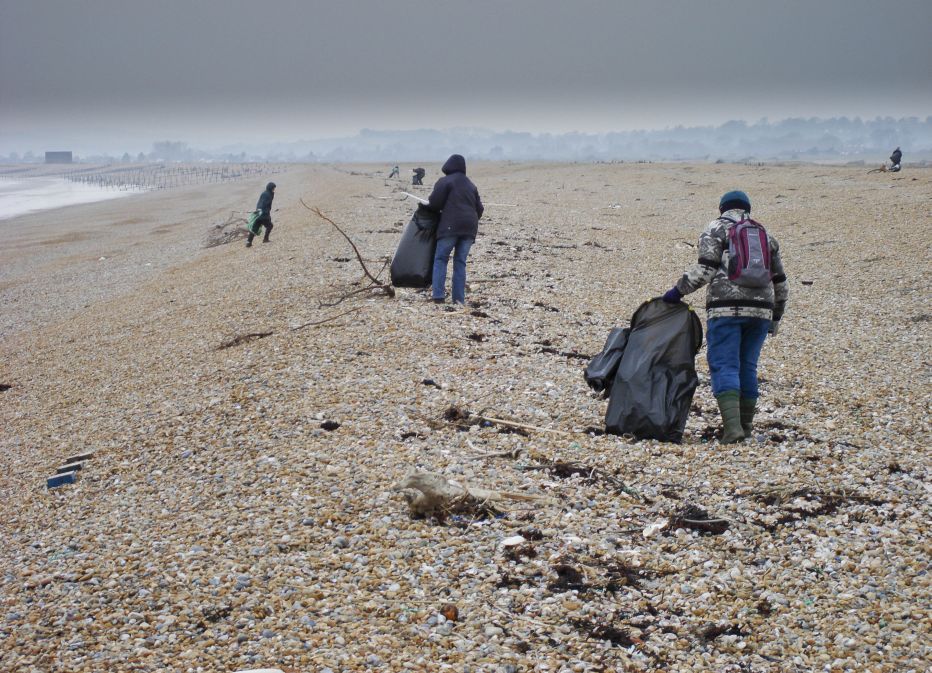Beach cleans are becoming increasingly important and the Sussex Wildlife Trust, which organises a number of beach cleans each year have provided answers to questions about them and hope that this will encourage even more people to take part.
Why are beach cleans so important?

David Attenborough in Blue Planet II revealed some of the shocking effects that plastic pollution is having on our oceans, and the programme created a lot of interest in reducing our use of plastic. Sussex Wildlife Trust has been so pleased by the number of volunteers and corporate groups who have taken part in beach cleans. It makes a difference, and we really appreciate it. But we do need to keep on doing it. Storms and tides wash up debris on the beach and there are unfortunately also a few visitors who don’t take their rubbish home.
What do you usually find?
We often find pieces of fishing net, rope and lots of bottle tops.
Have you ever come across something unusual?

We find odd things all the time – we can spend ages trying to identify what some things once were! Things I have kept include plastic seagrass – one of nearly five million bits of Lego that fell into the sea in a container in 1997, still being washed up today. We liked a pebble with a smiley face. I also enjoy finding mermaid’s purses, that I can record through the Great Eggcase Hunt recording scheme.
How much of a difference does it make when people volunteer to help?
It makes a huge difference. I can’t collect much on my own, but with a group of us, we can cover a much greater area.
Is anyone welcome to come?
Yes, absolutely. And families are very welcome.
When do the beach cleans take place?
We always have a beach clean at the start and end of winter.
And monthly, our volunteer Litter Heroes (and anyone is welcome to be one) come along for a couple of hours, for a stroll, chat, look at wildlife as well as some cleaning up. This happens on the 4th Wednesday of every month, year-round. We meet at 10am at Rye Harbour car park.
When is the next beach clean?
Saturday March 23, from 10am until 1pm. Afterwards, we serve delicious home-made soup!
We meet in the Rye Harbour car park then drive the volunteers down to the beach, and spread everyone out, so we can cover the largest possible area.
We advise that people wear sensible clothing. Layers are good. It can be windy.
Are there other ways people can help?
Yes, whenever you visit a beach, take a bag with you and do a two-minute clean. It can really make a difference when lots of people do this.
Image Credits: Barry Yates , Erin Pettifer, Sussex Wildlife Trust .




Hello Emma and all,
I live in Camber and frequently walk on the beach. I pick up a lot of litter as do my family. It has struck me on more than one occasion that some of the ‘rubbish’, that we pick is very possibly, rope of differing diameters and differing lengths and a selection of netting, coming from the fishing boats. Whilst these are not too unsightly they do seem to attract other debris and become a ‘knot’ of unsightly rubbish. While the practice of throwing unwanted bits of rope and netting may have been acceptable in the past, now with all the other plastics we unwittingly chuck about it is really not acceptable. Would it be possible for the Fisher folk to return the offcuts with the boat and pop them in bins? Many Thanks